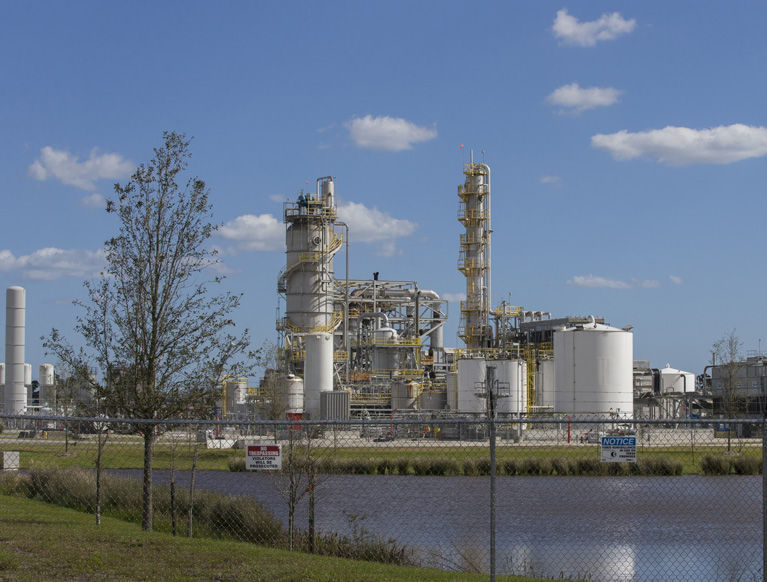
INDIAN RIVER COUNTY — National biofuel publications are questioning the viability of the INEOS ethanol operation on Oslo Road after running into the same stone wall of silence Vero Beach 32963 has encountered in trying to find out what is happening at the beleaguered plant.
Ever since the government-subsidized $130 million plant opened in 2013, questions have swirled about whether the secretive operation has produced marketable quantities of biofuel – or any at all.
So far the silence from INEOS has been deafening and, after more than two years, that in itself seems to support the word on the street in Indian River County: As one anonymous current employee recently put it, “not a drop” of biofuel has been distilled.
Now, the cloak of silence surrounding the plant is stirring up talk in the global biofuel industry as well, and it looks more and more that what appears to be the case is, indeed, the case: INEOS has yet to produce anything remotely resembling the 8 million gallons of biofuel per year its early press releases trumpeted.
INEOS Bio’s much-vaunted game plan was to convert biomass – non-food vegetative and yard waste – into cellulosic ethanol, using its gasification and fermentation technology. In brief, after a gasifier converts the feedstock into synthetic gas, bacteria metabolizes the syngas into ethanol.
However, a recent article from global industry market information provider ICIS (Independent Chemical Information Service) reports, “INEOS Bio will not confirm if its US cellulosic ethanol plant is running or if it has made significant amounts of the biofuel, leaving unanswered if its gasification route is a viable alternative to sugar fermentation. In addition, the company would not say . . . how much ethanol it has produced since start-up.”
The Environmental Protection Agency also refuses to shed any light on production. Despite repeated inquiries from ICIS over a period of two months, “the (agency) would not disclose the amount of ethanol produced by the plant, saying that most companies consider such data confidential business information, meaning it could not be disclosed to the public.”
Yet the plant was built with tens of millions of dollars in public subsidies from the state and federal government, and has been supported by hundreds of thousands of dollars in county grants and tax credits, most of which were based on its renewable energy project.
Mark Niederschulte, the newest INEOS spokesperson, has declined to discuss anything to do with production, or lack thereof, and he now no longer even responds to inquiries.
Over the past two years, this paper has received numerous reports from current and former employees concerning various problems at the plant. They consistently state little or no biofuel has been produced. All request anonymity, saying they have been forbidden to speak on penalty of unemployment.



